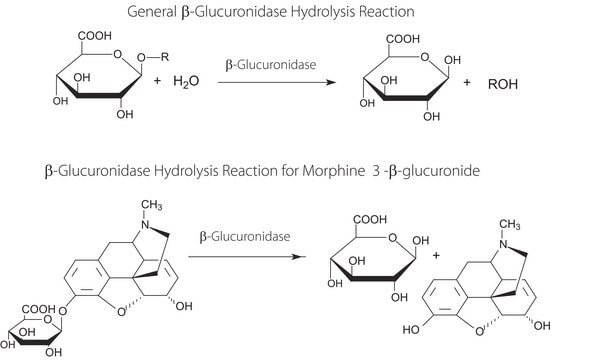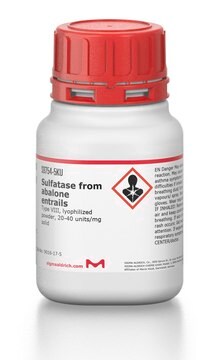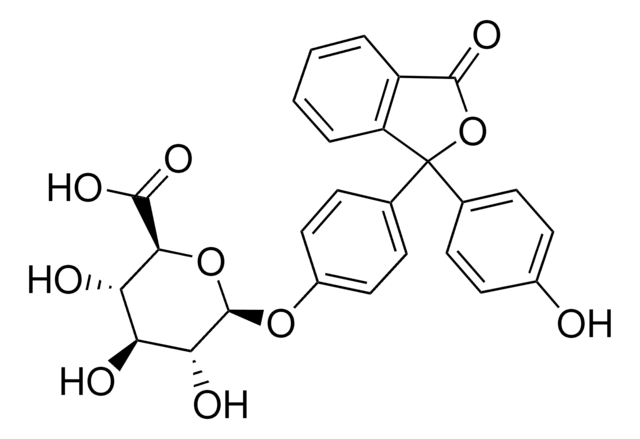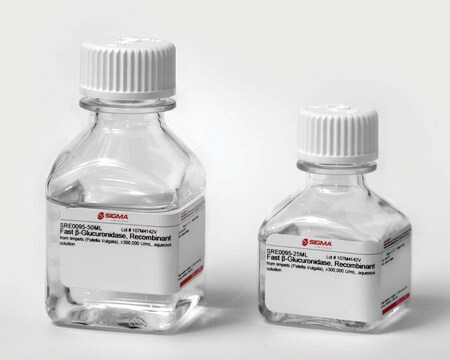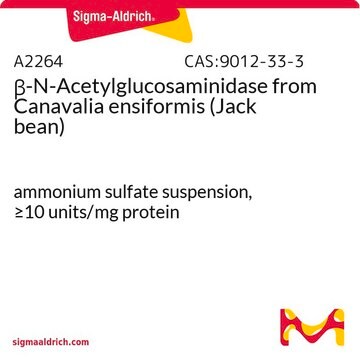G7396
β-Glucuronidase from Escherichia coli
Type IX-A, lyophilized powder, 1,000,000-5,000,000 units/g protein (30 min assay)
Synonym(s):
β-D-Glucuronide glucuronosohydrolase
About This Item
Recommended Products
type
Type IX-A
Quality Level
form
lyophilized powder
specific activity
1,000,000-5,000,000 units/g protein (30 min assay)
mol wt
290 kDa
composition
Protein, 30-70% biuret
shipped in
wet ice
storage temp.
−20°C
Looking for similar products? Visit Product Comparison Guide
Related Categories
Application
Learn more
about recent application data generated by Sigma R&D to optimize hydrolysis for different drug classes using enzymes from different sources and the use of a chromatographicaly purified enzyme to reduce the effect of esterase activity resulting in conversion of 6-MAM to Morphine
Quality
Unit Definition
also commonly purchased with this product
Signal Word
Danger
Hazard Statements
Precautionary Statements
Hazard Classifications
Resp. Sens. 1 - Skin Sens. 1
Storage Class Code
11 - Combustible Solids
WGK
WGK 3
Flash Point(F)
Not applicable
Flash Point(C)
Not applicable
Personal Protective Equipment
Certificates of Analysis (COA)
Search for Certificates of Analysis (COA) by entering the products Lot/Batch Number. Lot and Batch Numbers can be found on a product’s label following the words ‘Lot’ or ‘Batch’.
Already Own This Product?
Find documentation for the products that you have recently purchased in the Document Library.
Customers Also Viewed
Articles
β-glucuronidase (GUS) enzymes are utilized to hydrolyze glucuronide (gluc) drug metabolites to the parent drug, facilitating analysis by LC-MS/MS.
Probiotics exhibit an inhibitory effect on pathogens, help prevent chronic intestinal inflammatory diseases or atopic syndromes, and support the immune system.
Protocols
Objective: To standardize a procedure for the enzymatic assay of β-Glucuronidase.
Optimize β-glucuronidase hydrolysis for glucuronide metabolite analysis considering factors like time, temperature, pH, and enzyme concentration.
Our team of scientists has experience in all areas of research including Life Science, Material Science, Chemical Synthesis, Chromatography, Analytical and many others.
Contact Technical Service